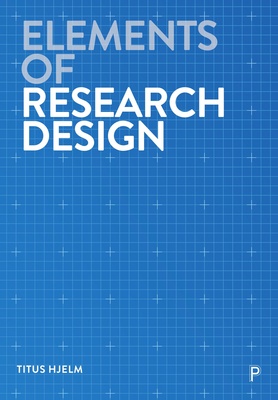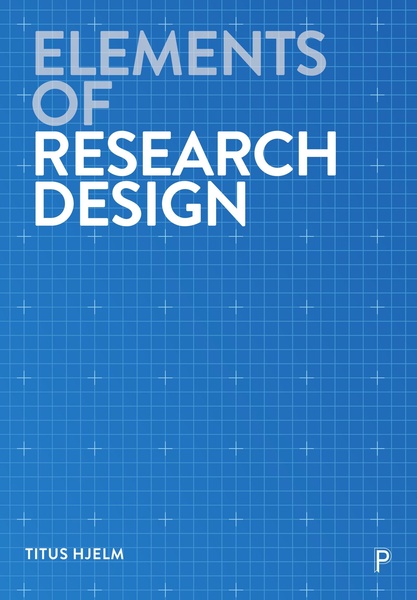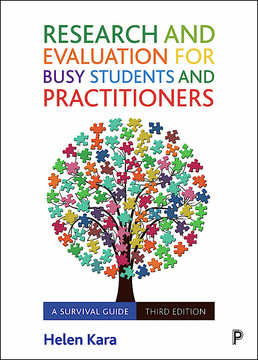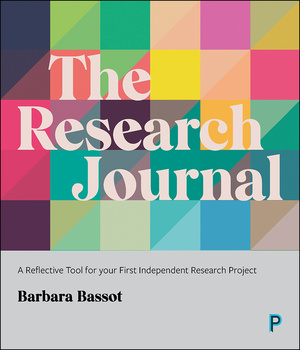Elements of Research Design
By Titus Hjelm
Published
Mar 19, 2024Page count
196 pagesISBN
978-1447364047Dimensions
234 x 156 mmImprint
Policy PressPublished
Mar 19, 2024Page count
196 pagesISBN
978-1447364030Dimensions
234 x 156 mmImprint
Policy PressPublished
Mar 19, 2024Page count
196 pagesISBN
978-1447364054Dimensions
234 x 156 mmImprint
Policy PressPublished
Mar 19, 2024Page count
196 pagesISBN
978-1447364054Dimensions
234 x 156 mmImprint
Policy PressTitus Hjelm’s guide to designing a research project is an invaluable primer for students embarking on dissertations, theses and other research projects.
The book goes beyond simple introductions to methods to help researchers identify their priorities and goals from the outset. A "pocket supervisor" for researchers, it shows how projects are not limited by conventional and siloed steps of research, but are instead holistic processes.
Key features of the text include:
• an accessible guide to all key elements of research design and their connectivity;
• a concise and road-tested approach to save researchers time and effort;
• practical tasks to help readers through their projects.
The book succinctly sets out the best approaches to each element of research including questions, literature reviews, data collection and analysis, and covers other important aspects including ethics. It builds into a toolkit that equips readers with the knowledge and confidence to conduct more effective research and, ultimately, achieve better outcomes and satisfaction.
“In accessible language, Titus Hjelm walks the new student – and perhaps sometimes even the experienced researcher – through the daunting task of turning a hunch or ill-formed question into a doable research project. His guide is approachable, thorough and brilliantly executed.” Steven Livingston, George Washington University
“Fun to read, engaged, sharp. Critical and at places even provocative, but always in the service of better research. Provides the essentials of research design in a nuanced, humorous and thought-provoking way. Read it all or use it as a reference work.” Lene Kühle, Aarhus University
“Titus Hjelm’s Elements of Research Design is animated with stories of discovery, exploration and breakthroughs occurring throughout the research process. The book’s accessible, conversational style successfully aims to activate the creative process of research design and the generation of new knowledge. Hjelm clearly outlines a number of crucial research elements, including questions, data, methods, literature, theory, and ethics. He also guides researchers towards a synthesis of these elements, resulting in an aligned, rigorous, and manageable research design. Hjelm helpfully stresses that research is not a series of linear steps, but rather a process of engagement with these elements, rethinking and circling back to them throughout the process. The emphasis on parsimony is also particularly insightful, in terms of refining project questions and scope, and for researcher wellbeing. This book will be invaluable for students and supervisors alike.” Anna Halafoff, Deakin University
“Based on his many years of experience teaching research design, Titus Hjelm’s excellent new book will skilfully guide students through the often daunting process of crafting a research dissertation.” Richard Mole, University College London
“In over 30 years of supervising postgraduate students, Hjelm’s Elements of Research Design is by far the best text that I have come across, on how to do academic research.” Chris Rudd, University of Otago
"A very helpful and engaging text on research design. The chapters on developing research questions and writing proposals will be especially helpful to students completing the research methods module. " Peter Simcock, Birmingham City University
Titus Hjelm is Professor in the Study of Religion at the University of Helsinki. He was previously Reader in Sociology at University College London.
1. Elements
2. Question
3. Data
4. Method
5. Literature
6. Theory
7. Ethics
8. Contribution
9. Writing
10. Proposal












